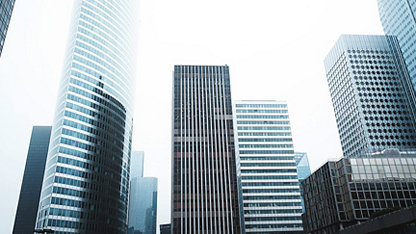As part of RICS’ commitment to sustainability, we are showcasing where firms are innovating to address the issues of climate change. The contents of this article to do not constitute an endorsement of their service, but are intended to be used as ideas for how surveyors can tackle issues such as climate change with the work they do. For other case studies please visit our Sustainability hub.
TFT are an independent property consultancy that offers a greener alternative to the dilapidation process for retail, commercial and industrial property sectors across the UK. Based in Scotland, they are development, built assets and sustainability specialists.
To support the drive toward net zero carbon and waste reduction, TFT has developed Green Dilapidations. Applying sustainable principles to the process of leasing commercial properties, the new service supports the commercial property market to become greener.
The aim of TFT Green Dilapidations is to put clients at the forefront of this process, reducing time and resources on both sides, and carbon emissions all around. By doing dilapidations in a greener way, clients reduce the additional material, resources and cost associated with repeatedly fitting out and stripping commercial property spaces over their lifetime.
Sustainable solutions for stakeholders
The quantities of waste produced and carbon wasted in the traditional strip-out cycle are uneconomical and unsustainable. TFT Green Dilapidations take a long-term view of tenancy, occupier and market requirements by facilitating better collaboration and communication between stakeholders and offering solutions that are more sustainable in terms of material and process.
The procedure consists of the simple principle that a tenant’s fit out should not automatically be stripped out. Standard practice has been to remove existing fit outs at the end of a lease, no matter their condition or potential suitability for a new occupant.
They have devised several principles to help landlords judge a tenant's application for consent for alterations. These are:
- All items removed from the premises (or which will be removed in the future) should be capable of re-use.
- All items introduced into the premises should be on their second life (or beyond) and/or be capable of further re-use.
- Design detailing should enable future disassembly.
- The use of concrete should be avoided, any steel should have a high recycled content.
- All timber should be certified as being from a sustainable source.
- Changes to the existing layout of services should be minimised.
- The design of the fit out should be such that it can reasonably be expected to be reusable by a future tenant and should not be a detriment to future marketing of the premises if it was left in situ.
- The design of the fit out should follow the WELL certification guidance, to the extent reasonably possible.
- All items should be solvent free, formaldehyde free and low in VOC (volatile organic compounds).
- All associated carbon emissions (including manufacture, transportation of materials and contractors, maintenance, and removal) should be minimised and all remaining emissions should be offset.
What next?
Further work is being done to investigate the drafting of leases, including the obligation to repair, disincentives to replace items, and the removal of payment clauses. Future work will look at the role of air conditioning, ventilation, and the durability of fittings.
If you would like to know more about Green Dilapidations, please visit the TFT website.












